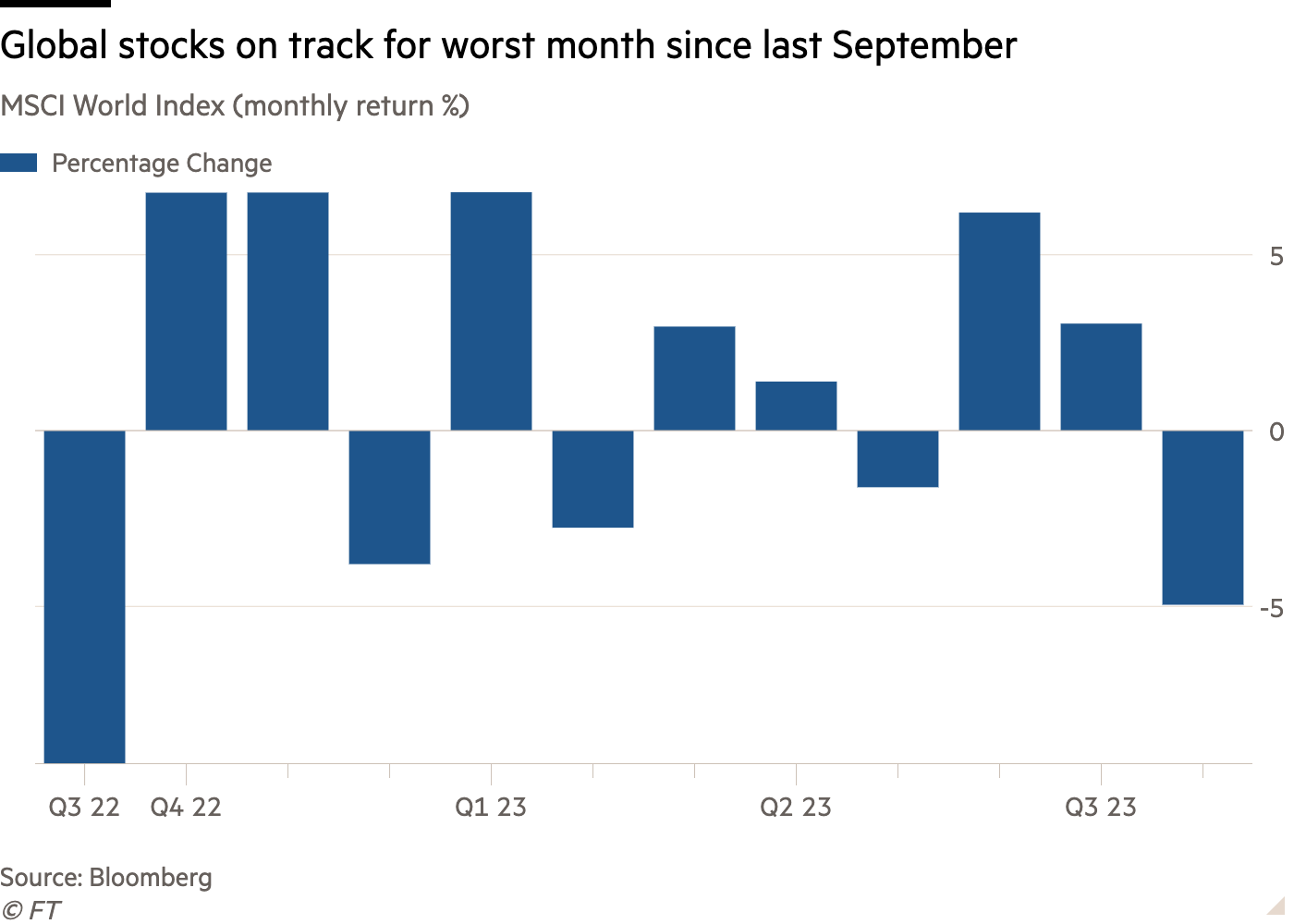
Receive free World updates
We’ll send you a myFT Daily Digest email rounding up the latest World news every morning.
A boom in PwC’s Saudi Arabia-dominated consulting business in the Middle East helped the Big Four firm’s UK partners avoid a significant drop in pay last year as rising costs dented profits.
Partners in the UK firm, which encompasses its Middle East operations, were paid an average of £906,000 for the 12 months to June, down £119,000 from the previous year when a windfall from the sale of a business unit propelled their average takings to more than £1mn.
Revenues at the Middle East business rose by about 40 per cent to nearly £1.5bn, the firm said, dwarfing the near-10 per cent growth in the UK.
Kevin Ellis, chair and senior partner of the UK and Middle East firm, attributed the rapid growth in the Middle East business, which accounted for a quarter of total revenues, to “the investment in places like Saudi [Arabia] and across the Middle East in oil divestment”.
The Middle East arm is more heavily focused on selling consultancy services, including in its Saudi Arabia offices where it mainly serves government and state-owned entities, said Ellis. Here’s what the firm had to say when questioned on the kingdom’s human rights record.
Here’s what else I’m keeping tabs on today:
-
Nvidia: Investors are set to assess whether enormous demand for artificial intelligence products can help offset a slump in global sales for computer hardware when the world’s most valuable chipmaker reports its highly anticipated quarterly results.
-
Zimbabwe polls: Emmerson Mnangagwa hopes to land a second term as president as voters head to what critics have called the African nation’s “worst-organised and most contentious election of the last two decades”.
-
US politics: Barring a last-minute change of heart, Donald Trump’s absence from tonight’s Republican presidential debate in Wisconsin is set to divide his rivals in the party and deepen his rift with host Fox News.
-
Economic data: S&P Global releases flash purchasing managers’ indices for the US, the UK, the EU, France and Germany. South Africa publishes its consumer price index for last month, while Iceland’s central bank will decide whether to raise its key interest rate, now at 8.75 per cent.
Five more top stories
1. Private equity firms such as KKR and Bain Capital are handing over distressed companies to rivals as they struggle with higher interest rates, stubborn inflation and supply chain issues. The trend also shows the expanding influence of their lending arms, with the private credit business growing faster than buyouts. Here are the other firms handing control to creditors.
2. “Zero-day” options are coming to Europe soon, with Deutsche Börse’s Eurex offering daily options that track the Euro Stoxx 50 from Monday. The contentious form of derivatives trading, which has already swept across US markets, offers contracts that expire on the same day they are purchased and allows traders to take targeted positions in stock markets around key events. Despite customer demand, concerns remain about their effect on trading activity.
-
Opinion: Sovereign exposure to the corporate sector has crossed 20 per cent of gross domestic product in Europe, getting uncomfortably close to a new danger zone, writes Allianz’s chief economist Ludovic Subran.
3. Pension funds are backing crypto prime broker Hidden Road, a company that helps hedge funds take bigger bets on volatile digital assets. Retirement plans such as those of US defence contractor Lockheed Martin are among those putting their money into the London-based broker. Here’s why analysts think the investment is risky.
4. The White House has told China to be more transparent about its economic health after Beijing halted publication of data on its soaring youth unemployment last week and cracked down on corporate due diligence reporting in the country. The US national security adviser criticised the moves as not “responsible”. Read more from Jake Sullivan’s remarks to reporters yesterday.
5. Exclusive: Britain will proscribe the Wagner group as a terrorist organisation “within weeks” after officials spent months building up a detailed legal case, government insiders revealed. The home secretary is expected to announce the designation for the Russian mercenary network as part of a fresh crackdown after criticisms of inaction.
The Big Read

Buoyed by petrodollar windfalls, oil-rich Gulf states are determined to chart their own courses in an era of polarising, shifting global dynamics. At the forefront are Saudi Arabia, the world’s top oil exporter, and the United Arab Emirates, the region’s dominant trade hub. The common theme in both Gulf powerhouses is one of self-assured, assertive leaders who are no longer willing to accept “with us or against us” US demands — and an increasing focus on the east.
We’re also reading . . .
-
Arm IPO: The SoftBank-owned chip designer is looking to sectors such as artificial intelligence and cloud computing as its dominance in smartphone processors becomes a challenge to future growth.
-
Consumer prices: Some of the world’s biggest companies have signalled they could slow price rises, but shoppers will still feel the pinch of expensive goods.
-
Irish economy: A puzzling bump to EU data recently came entirely from a 13.1 per cent surge in industrial production growth from Ireland, highlighting how the country’s wild data is distorting the region’s statistics.
-
Niger coup: Who lost Niger? Apart from France’s policy failure in west Africa, the US’s “difficult” talks with the military junta have also led nowhere, writes Le Monde’s Sylvie Kauffmann.
Chart of the day
Global stock markets have lost about $3tn in value this month, as a “witches’ brew” of gloomy Chinese economic data and surging US borrowing costs sours investor sentiment after a bumper start to the year.

Take a break from the news
FT airman-columnist Mark Vanhoenacker explains how pilots deal with multiple concepts of speed — and why today’s airliners are no quicker than those 60 years ago. Read Vanhoenacker’s fascinating View from the Cockpit column.

Additional contributions from Benjamin Wilhelm and Leah Quinn






